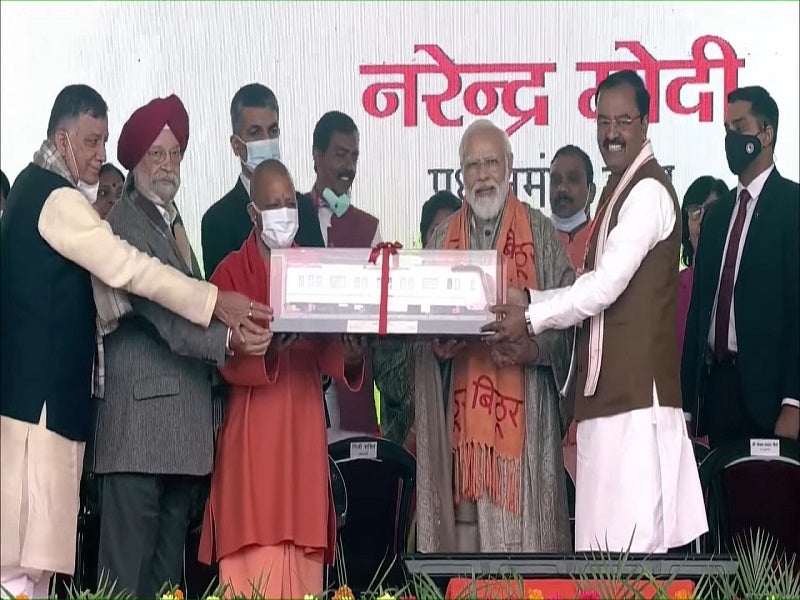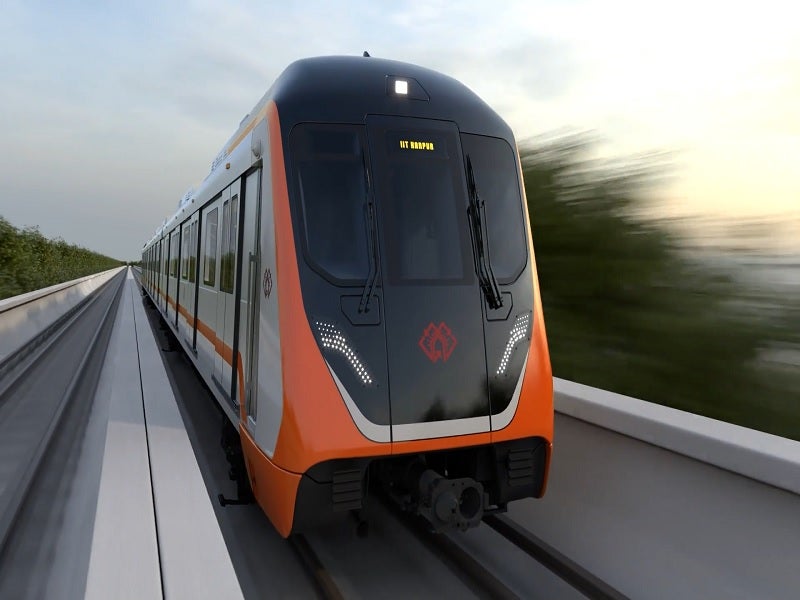Kanpur Metro is an urban mass rapid transit system (MRTS) being developed to meet the long-term traffic demand of the city of Kanpur, in Uttar Pradesh, India.
The project is being implemented by Uttar Pradesh Metro Rail Corporation (UPMRC), which was previously known as Lucknow Metro Rail Corporation (LMRC). UPMRC is a joint venture between the Government of India and the Government of Uttar Pradesh.
The metro rail system will run across the city and has a provision to extend services to the Kanpur Metropolitan Region.
The Kanpur Metro entered service with the inauguration of a 9km section from IIT-Kanpur to Moti Jheel, in December 2021.
Scheduled to be completed in 2024, the 32km-long metro rail system will shorten journey times and open up new career and educational opportunities in Kanpur, Uttar Pradesh’s industrial capital.
Kanpur Metro project development
Rail India Technical and Economic Service (RITES) submitted a detailed project report (DPR) of the project to the state government in 2015. The Union Cabinet of India approved the project in March 2019.
The Kanpur Development Authority (KDA) is the nodal agency for Kanpur Metro, and UPMRC coordinated the preparation of the DPR for the project. The total cost estimated for the Kanpur metro project will be Rs110.76bn ($1.56bn).
Civil construction work for the priority corridor of the project, from IIT-Kanpur to Moti Jheel, started in November 2019.
Based on the DPR, the MRTS project is expected to have a peak hour peak direction traffic (PHPDT) of 18,040 passengers in 2024 for the 24km-long stretch between IIT Kanpur and Naubasta. The length of the first phase is approximately 33km, and the project will include a total of 30 stations.
Kanpur Metro rail project details
The Kanpur Metro will have two corridors. The IIT-Kanpur to Naubasta corridor will include an elevated section of 15.16km, and an underground stretch of 8.62km. The 8.5km-long second corridor from Agriculture University to Barra-8 will include a 4.19km elevated stretch and a 4.41km underground section.
The project’s first pillar cap was erected on pillar number 19 in March 2020. Construction of 42 pillars, and the casting of ten pier caps and 24 U-girders, was also completed in the same month.
Kanpur Metro is expected to reduce vehicular traffic and enable ease of movement on roads. It will also reduce pollution and travel time.
Kanpur Metro line routes and stations
The first corridor will have 22 stations, comprising 14 elevated and eight underground stations. Metro stations will link key educational institutions such as IIT-Kanpur, CSJM University, and GSYM Medical College.
Key stations at Jhakarkati Bus Station, Kanpur Central Railway Station, and Naubasta will be connected through this corridor. The Rawatpur Railway station will serve as an interchange.
The corridor between Agriculture University and Barra-8 will pass through eight stations, including Kakadeo, Vijay Nagar Chauraha, Shastri Chowk, and Govind Nagar. It will connect densely populated residential areas. Four of the stations will be elevated while the remaining four will be underground.
The 9km-long priority section includes nine elevated stations. The stations are IIT-Kanpur, Kalyanpur Railway station, SPM Hospital, and CSJM University, Gurudev Chauraha, Geeta Nagar, Rawatpur Railway station, Lala Lajpat Rai Hospital, and Moti Jheel.
Kanpur Metro project infrastructure
Kanpur Metro will have a standard gauge track of 1,435mm that will support operations at a maximum speed of 90km/h.
The metro system will feature pedestrian facilities, open bicycle-sharing systems, and feeder transportation facilities. The corridors in the first phase will have a total parking area of 161,950m².
Proposed facilities to improve the movement of pedestrians include skywalks, pathways, subways, and foot over bridges.
Stations will have toilets, security rooms, changing rooms, and retail spaces. The project will also feature the construction of a maintenance depot and workshop.
Financing for Kanpur Metro project
The national and state governments will partly finance the Kanpur Metro project. The project will also secure financing from international funding organisations.
In its budget for 2020-21, the Uttar Pradesh Government approved an allocation of Rs3.58bn ($49.87m) for phase one of the project.
The European Investment Bank (EIB) provided €650m ($774m) for the construction of the 9km priority corridor of the Kanpur Metro project, in August 2020.
In 2016, a team of the Japan International Cooperation Agency (JICA) assessed the project and expressed an interest to offer funding.
Contractors involved
Bombardier Transportation (now Alstom) won a contract to supply MOVIA metro three-car trainsets, and CITYFLO 650 signalling systems, for the Kanpur Metro project, in July 2020.
Alstom acquired Bombardier Transportation in January 2021, and supplied the first trainset for the project in September 2021.
Afcons Infrastructure received a civil contract for the metro rail project in September 2019. The Rs6.76bn ($95.01m) contract involved the construction of nine metro stations and elevated viaduct structures.






